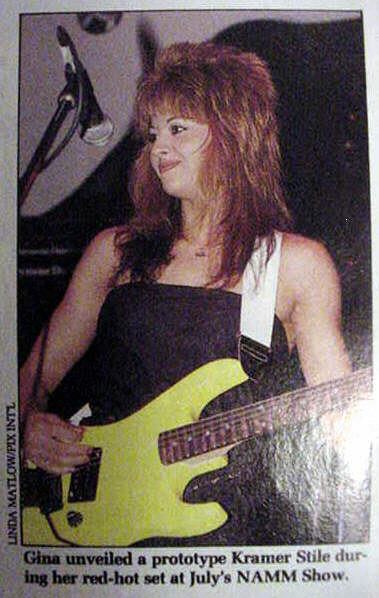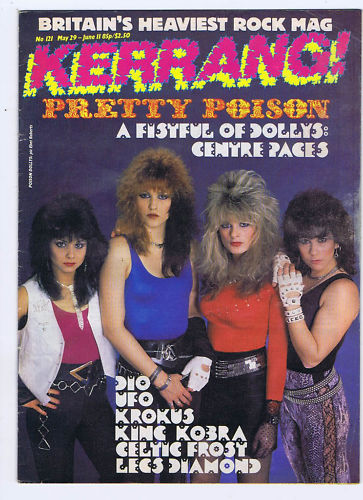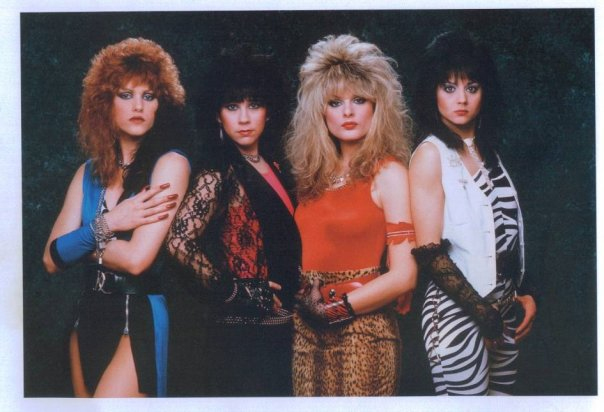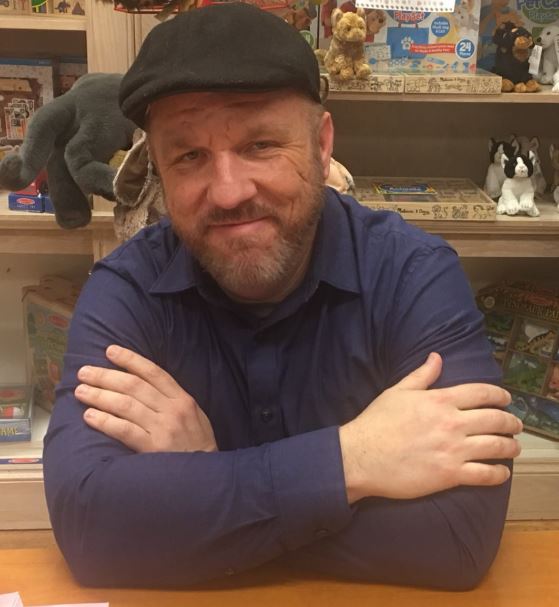Interview: Guitarist Gina Stile Talks JSRG, Vixen, Thunderbox and Her Twisted Sister Connection
All the latest guitar news, interviews, lessons, reviews, deals and more, direct to your inbox!
You are now subscribed
Your newsletter sign-up was successful

Gina Stile has been involved in several successful projects over the years, including the '80s bands Poison Dollys and Envy.
She's opened for Aerosmith on a string of dates, and one of her albums was produced by Dee Snider of Twisted Sister. Her current all-female project, Thunderbox, is generating a lot of buzz in the New York area. And it doesn't hurt that she’s one hell of a guitar player.
In the mid-'90s, after the break-up of Vixen, Stile began working on a new project with Vixen drummer Roxy Petrucci and singer Janet Gardner. Although the music they made was never intended to be labeled "Vixen" because of its heavier edge, it was released as a Vixen album called Tangerine in 1998.
In 2012, Stile was already busy with Thunderbox when she was again approached by Gardner, Petrucci and now former Vixen bassist Share Ross about forming a new project, JSRG. With the lineup intact, Stile is performing with Petrucci and Gardner for the first time in 14 years.
I recently spoke with her about the new project as well as her playing and her other heavier edged group, Thunderbox.
GUITAR WORLD: How did JSRG begin?
Janet, Share and Roxy had been talking about doing a classic Vixen reunion for quite a while. They approached Jan [Kuehnemund, guitarist for Vixen], but she declined the opportunity. So rather than just not do anything, they decided to try something different. They asked me to come in, and we came up with JSRG. I'm excited to be a part of it.
All the latest guitar news, interviews, lessons, reviews, deals and more, direct to your inbox!
Tell me about your involvement with Vixen and the Tangerine album.
After Vixen disbanded in the early '90s, Roxy contacted me about working on a new project. Although nothing became of it, she eventually introduced me to Janet, and the two of us started writing together. A lot of people may not realize this, but the music that we were working on was never intended to be Vixen. Janet and I began working with our own band here in New York with Mike Pisculli on bass along with another guy drummer. It was around that time when Roxy called asking about doing a Vixen tour.
Was doing the project as Vixen and recording Tangerine something you wanted to do at the time?
I wasn't really keen on it; mostly because the songs we were writing were much heavier than Vixen. They contacted Jan about doing the tour, but she turned it down. By that time, Janet and I had already been working together for a few years and were starting to get offers to do a record. Since Roxy and Janet owned the name (along with Jan), we decided to do it as Vixen. We did the Tangerine record, went on tour for a few months and then it ended.
Let's talk about your other current band, Thunderbox.
The Thunderbox girls have so much energy. When we play, it's shocking to people sometimes because we'll whip out Metallica or Iron Maiden [laughs]. But once people become a fan of the band, it then becomes normal. We're also working on an album. We've recorded four songs so far and made a video for the song “Cherries N’ Cream."
Tell me about your relationship with Kramer guitars.
I endorsed Kramer from 1985 to 1988. In 1986, I was asked to help develop a 3/4-size guitar geared toward women and kids. I remember they would pick me up on Long Island and bring me down to New Jersey to help them with the style of guitar. Everyone at Kramer was fantastic! I actually still have the first one ever made with my Envy design. I’m not sure why they never released the series, but it was a great experience!
What's your current setup like?
I use Mesa Boogie amps — a Dual and Triple Rectifier through a Marshall cab with Celestion Vintage 30 speakers. For guitars, I have my Les Paul and my Snake Guitar and Custom Kelly, which were crafted from my custom Kramer guitar style. For effects, I use a Boss pedalboard (Octaver-Chorus-Delay-Flanger) along with MXR Fullbore Metal.
When did you get started playing?
When I was 9, my Uncle Phil bought me a four-stringed guitar I started dabbling on. When I was 11, he found me a Japanese guitar, and that's when it really started. I got into a band with my sister when I was 13. At that time, a studio really liked us and made a recording and played it for Dee Snider. Dee played it for Twisted Sister's management, and they signed us to a contract. I remember my first big gig was opening up for Leslie West and Mountain when I was 14. We even had Mark Mendoza and Jay Jay French come down and do our sound when we played bars [laughs].
Eventually, we had some family issues and my sister had to withdraw. That's when I joined the Poison Dollys, which was my first experience with an all-girl band.
What's one of your best memories of that band?
I remember I was 19 when we opened up for Aerosmith. We did a nine-show string of dates with them in front of 15,000 people. It was amazing.
Tell me more about your Twisted Sister connection.
When I was 21, I got back together with my sister in Envy, and we were signed to Atlantic Records. Dee Snider produced our record and it generated a lot of buzz.
Is there a good piece of advice you can give about practicing?
Back when I was doing the Envy record, I really wanted to become more technical. Joe Franco did the drumming on the project and one of the things he encouraged me to do was to start practicing along with a metronome. If you can practice for a few hours a day using a metronome, you're going to get really good. One of the other things I emphasize is working modes in a three-note pattern (and not the typical "box" pattern). It's a bit more classical, but you'll quickly see your chops start getting better.
Guitar playing is your emotion. It's who you are. Once you get your technique down, it then becomes a matter of your influences. If you can get to the point to where your chops are good, your own voice is going to come out in your playing.
For more about Gina Stile and her current projects, check out the JSRG Facebook page and Thunderbox's official website.
James Wood is a writer, musician and self-proclaimed metalhead who maintains his own website, GoJimmyGo.net. His articles and interviews are written on a variety of topics with passion and humor. You can follow him on Twitter @JimEWood.






James is a guitarist and freelance writer who's interviewed some of the biggest names in music. He is the author of four books and his writing credits include work for Guitar World, AXS and Yahoo! as well as for his hometown newspaper where he writes on a variety of topics with both passion and humor. As a guitarist, he's performed everywhere from local bars and nightclubs to some of the biggest stages in front of thousands of music fans.

